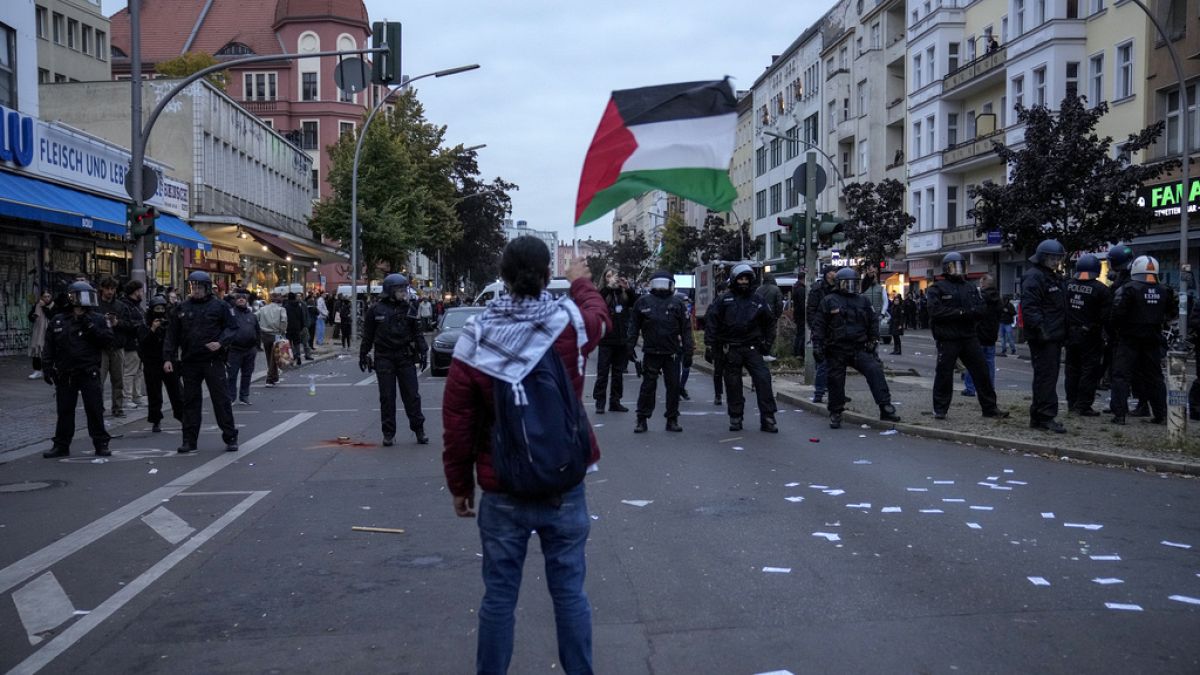Germany is facing a balancing act when it comes to protecting freedom of speech while also maintaining its support for Israel. This delicate situation was highlighted during a recent pro-Palestinian protest in Frankfurt, which drew thousands of demonstrators. The city’s mayor initially banned the event, citing concerns about potential antisemitism and criminal acts. However, a higher court overturned the ban, emphasizing the protesters’ constitutional right to assembly and expression. Despite the controversial slogans used during the protest, the court ruled that they did not pose a direct threat that could not be managed by police intervention.
One of the contentious slogans used during the protest was “From the river to the sea, Palestine will be free,” which has sparked debate about its meaning. Some argue that it implies the eradication of Israel, while others view it as a call for Palestinian statehood. German authorities have taken varying approaches to this slogan, with some banning its use and others allowing it on the grounds of freedom of assembly. Recent legal developments, such as the Interior Ministry’s regulations prohibiting individuals from using the slogan on social media to be eligible for German citizenship, highlight Germany’s struggle to reconcile freedom of speech with its historical responsibility to Israel.
The demonstrations in German cities were part of a global wave of protests following the escalation of the conflict between Israel and Hamas. The war, which began with Hamas’ attack on Israel, has resulted in thousands of deaths on both sides. The ongoing violence has also spread to the Israel-Lebanon border, with strikes hitting southern Lebanon and even the capital, Beirut. As tensions escalate, German authorities are under pressure to maintain order and prevent violence during these protests, while also respecting the rights of demonstrators to express their opinions.
Critics of the German government’s approach argue that they have become increasingly aggressive towards pro-Palestinian protesters, citing instances of police violence at rallies. Activists and legal experts have raised concerns about the suppression of dissent and the impact on freedom of expression in the country. The recent case of a protester being fined for using the contentious slogan at a rally in Berlin has sparked criticism of what some view as an overreach by the authorities in silencing dissenting voices.
Germany’s response to the protests and the broader conflict in the Middle East reflects the complexities of balancing democratic principles with geopolitical considerations. As one of Israel’s closest allies in Europe, Germany has a responsibility to support the country’s security and condemn attacks on its citizens. At the same time, it must uphold the rights of its own citizens to express their views and participate in peaceful protests. Finding a middle ground that respects both of these imperatives will be crucial in navigating the challenges of the current situation.










